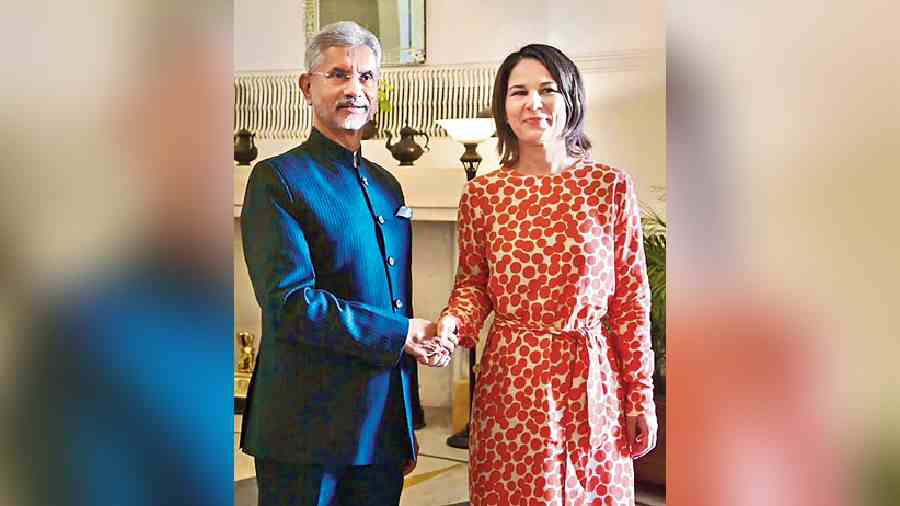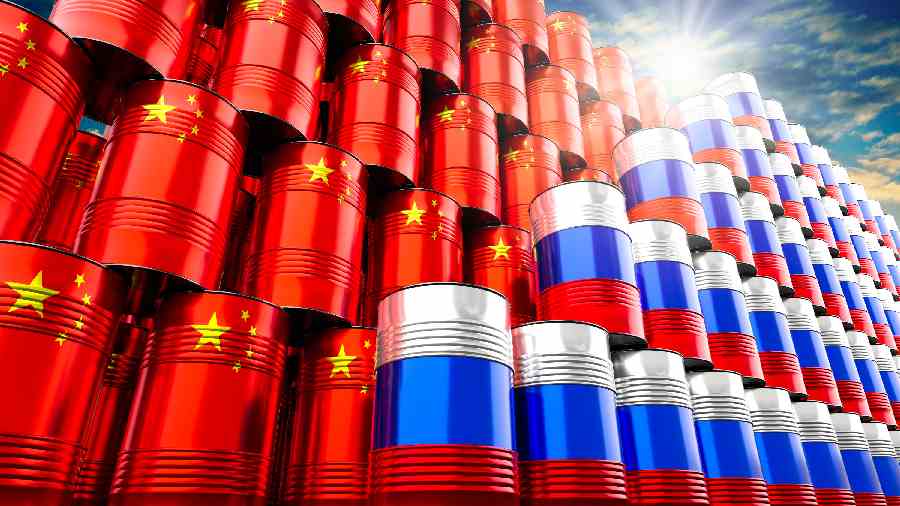The Group of Seven nations has started to enforce a $60-a-barrel price cap on seaborne Russian oil as the West tries to limit Moscow’s ability to finance its war in Ukraine, but the Kremlin said it would not abide by the measure even if it had to cut production.
India, which has been aggressively buying cheap Russian oil since May, has indicated it would continue to buy Russian oil to protect its energy security, and that its energy-sourcing priorities will not be influenced by the G7 move to impose the price cap.
“We will continue to do what is in our interest,” G20 sherpa and former CEO of Niti Aayog Amitabh Kant said in response to the latest development, which carries the risk of western economic sanctions if India breaches the price cap.
The G7 has yet to clearly articulate the economic consequences that countries violating the price cap could face.
The price cap, to be enforced by the G7 nations, the European Union and Australia, comes on top of the EU’s embargo on imports of Russian crude by sea and similar pledges by the United States, Canada, Japan and Britain.
It allows Russian oil to be shipped to third-party countries using G7 and EU tankers, insurance companies and credit institutions, only if the cargo is bought at or below the price cap.
As the world’s key shipping and insurance firms are based in G7 countries, the cap could make it difficult for Moscow to sell its oil at a higher price.
Russia, which is the world’s second-largest oil exporter, said on Sunday it would not accept the cap and would not sell oil that is subject to it, even if it has to cut production.
“We are working on mechanisms to prohibit the use of a price cap instrument, regardless of what level is set, because such interference could further destabilise the market,” Reuters quoted Russian deputy Prime Minister Alexander Novak as saying.
On Monday, the benchmark Brent crude price jumped over 3 per cent to $88.21 per barrel amid concerns in the market over further supply disruptions after the G7 move.
Data from the commerce ministry reveals that the value of Russian oil bought by India spurted from $1.42 billion to $3.36 billion in September.
India’s total oil imports in September fell to a 14-month low of 3.91 million barrels per day because of maintenance shutdowns at several leading refiners, including Reliance Industries and Indian Oil Corporation.
However, imports from Russia rose 4.6 per cent year on year to 896,000 barrels per day, roughly 23 per cent of its overall oil imports.
“It isn’t right for European countries to prioritise their energy needs but ask India to do something else…. Europe will make the choices (that) it will make. It is their right,” external affairs minister S. Jaishankar said after holding talks with his visiting German counterpart, Annalena Baerbock, during which they discussed bilateral relations and Russia’s war in Ukraine.
Energy experts said the EU’s imports of Russian liquefied natural gas (LNG) jumped 42 per cent between January and October this year over the same period last year.
The EU imported 62.1 billion cubic metres (bcm) of natural gas this year compared with 17.8 bcm last year.
The irony, these experts added, was that the surge in EU’s imports occurred after it threatened to reduce its dependence on Russian energy in the wake of the Ukraine crisis and advised countries like India to cut crude imports from Moscow. Oil minister Hardeep Puri tried to brush aside the implications of the G-7 price cap.
“I would say that India does not fear that the West’s proposed price cap could constrain shipping and impede the flow of Russian oil. I have no anxiety about that, and I am sure the market will deal with it,” Puri told a news channel.
Puri added: “Russia is not our top supplier of oil; our traditional top suppliers are Iraq, Saudi Arabia, and the UAE.”












